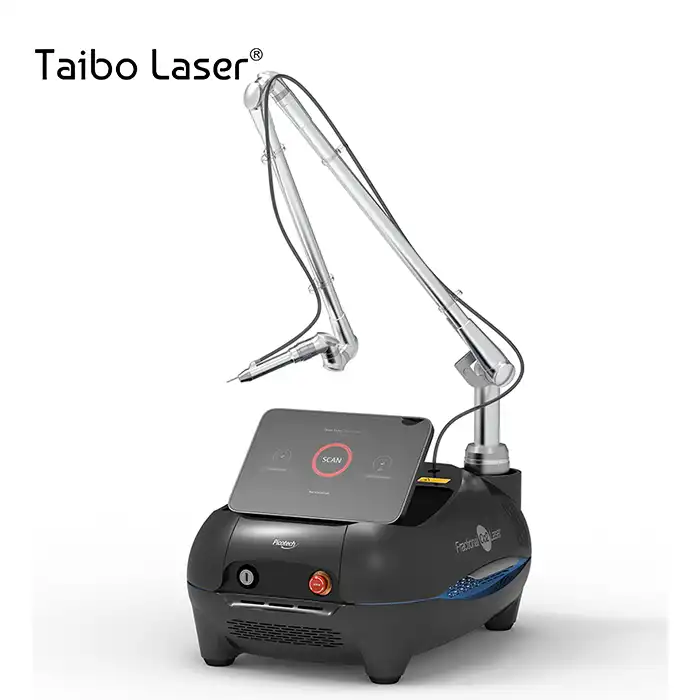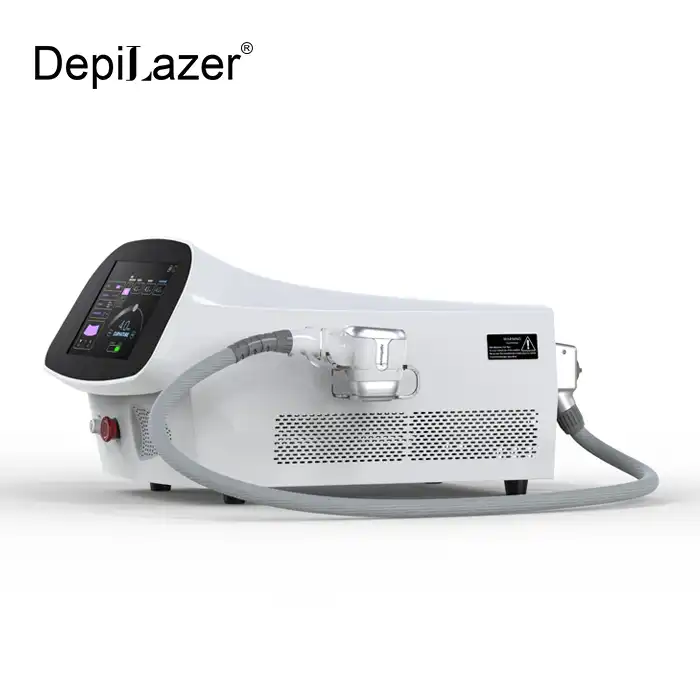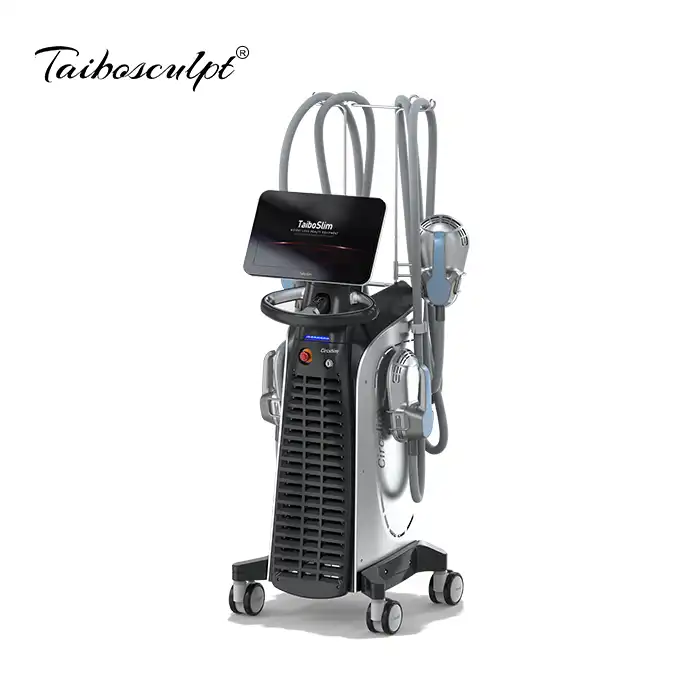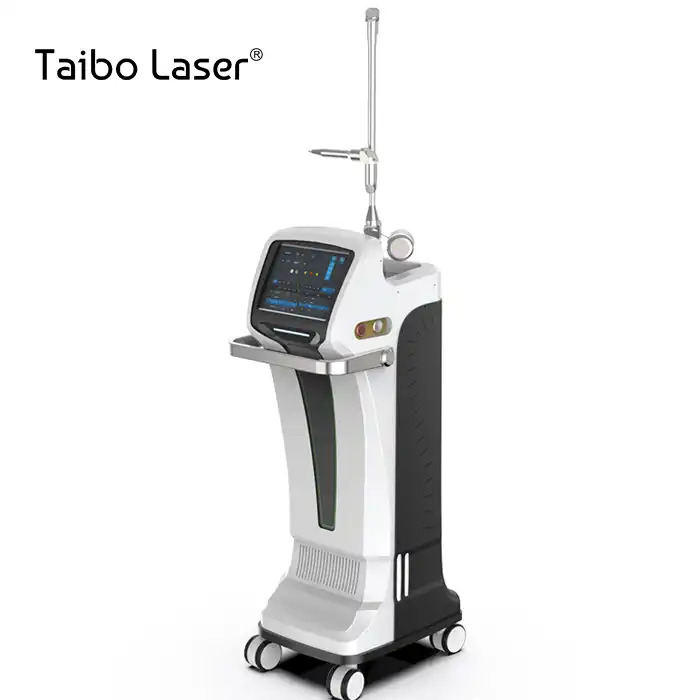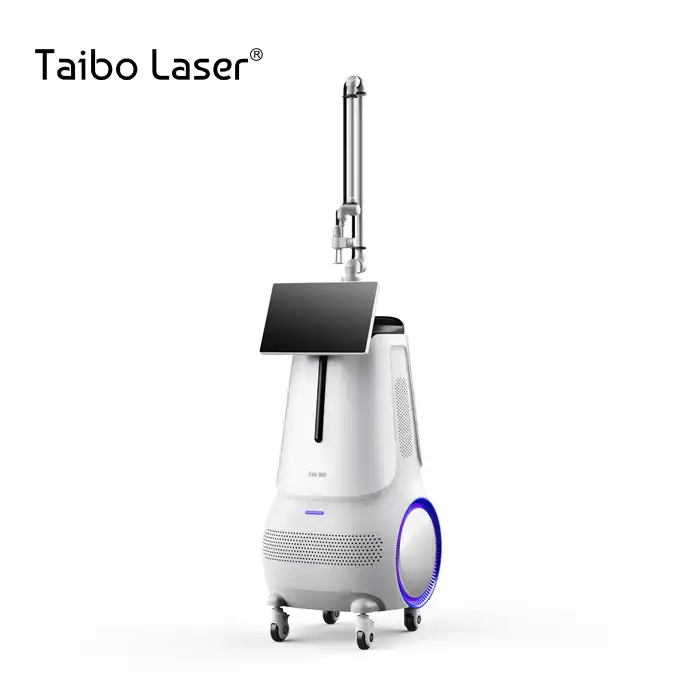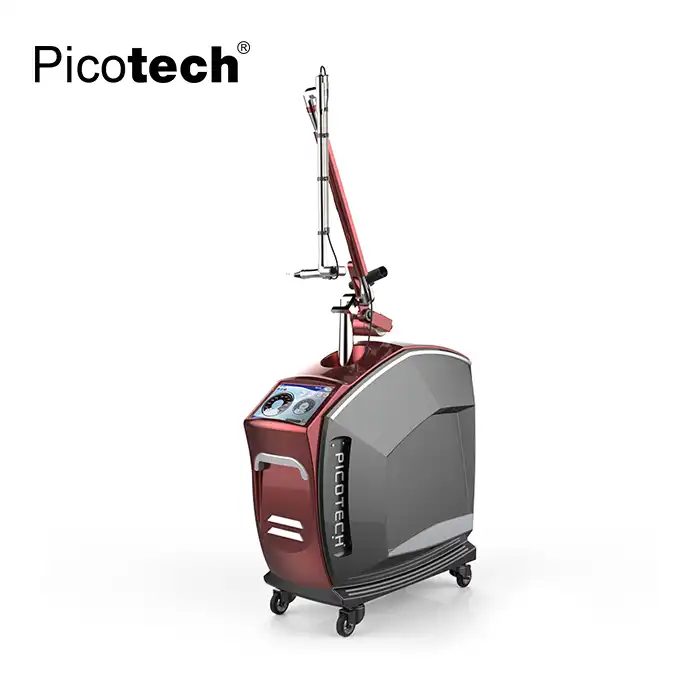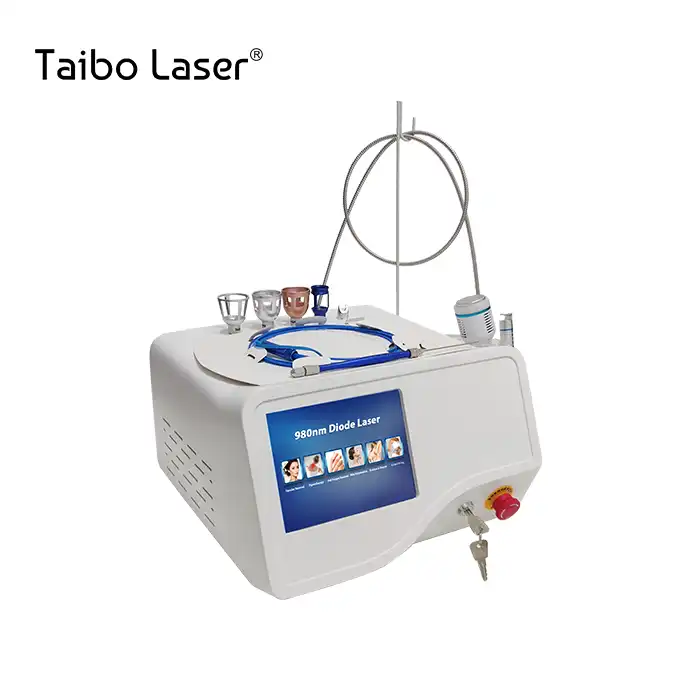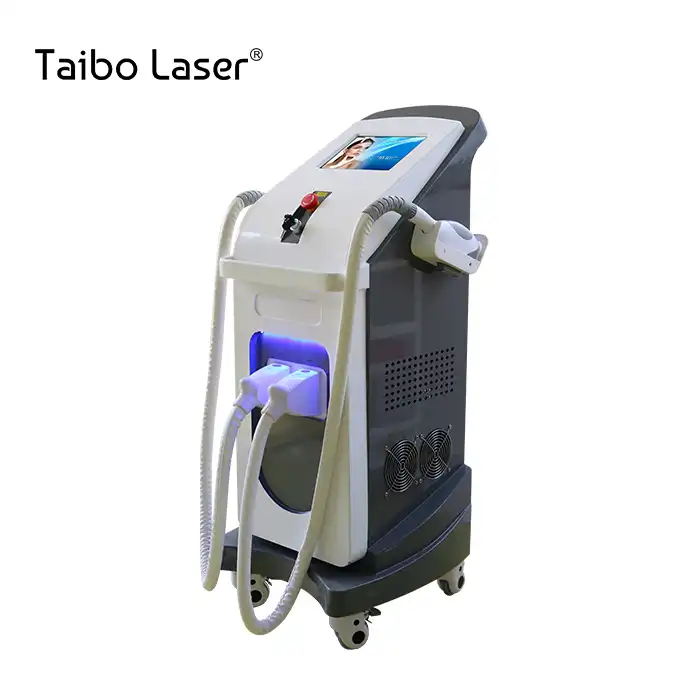
How to Choose the Best CO2 Laser Machine for Skin Rejuvenation?
2025-09-25 09:14:43
Picture this: your clinic is filled with patients seeking advanced skin rejuvenation treatments, but your current equipment isn't delivering the exceptional results they expect. You're watching potential revenue slip away while competitors with superior dermatology co2 laser machine technology capture your market share. Selecting the right CO2 laser machine for skin rejuvenation isn't just an equipment purchase—it's a critical business decision that impacts patient outcomes, clinic reputation, and long-term profitability. This comprehensive guide reveals the essential factors, technical specifications, and expert insights needed to make an informed choice that transforms your aesthetic practice and delivers outstanding skin rejuvenation results for every patient who walks through your doors.
Understanding CO2 Laser Technology for Skin Rejuvenation
-
The Science Behind Fractional CO2 Laser Systems
Modern dermatology co2 laser machine technology operates on the principle of controlled thermal injury, utilizing a wavelength of 10,600 nanometers that targets water molecules within skin tissues. This sophisticated approach creates microscopic thermal zones (MTZs) that stimulate natural healing processes while preserving surrounding healthy tissue. The fractional delivery system allows for precise control over treatment depth, energy density, and coverage patterns, making it possible to customize treatments for various skin conditions ranging from fine lines and wrinkles to acne scars and age spots. The fractional co2 laser's effectiveness stems from its ability to create thousands of microscopic columns of thermal injury extending into the dermis. These micro-wounds trigger the body's natural wound healing response, promoting collagen remodeling and new tissue formation. Unlike traditional ablative treatments that remove entire layers of skin, fractional technology preserves islands of healthy tissue between treatment zones, significantly reducing downtime while maintaining excellent clinical outcomes. Understanding the biological mechanisms is crucial when evaluating different dermatology co2 laser machine options. Systems with adjustable pulse duration, spot size, and energy density provide practitioners with the flexibility needed to treat diverse patient populations safely and effectively. The thermal coagulation zone created by CO2 laser energy also provides immediate skin tightening effects, while long-term collagen remodeling continues for months following treatment.
-
Clinical Applications and Treatment Versatility
Professional-grade dermatology co2 laser machine systems excel in treating multiple skin conditions simultaneously, making them valuable investments for aesthetic practices. These versatile platforms effectively address photoaging signs including solar lentigines, actinic keratoses, and rhytides, while providing excellent results for textural irregularities such as acne scarring, surgical scars, and stretch marks. The ability to perform both ablative and non-ablative treatments with a single system maximizes practice efficiency and patient satisfaction. Fractional CO2 resurfacing demonstrates superior efficacy in perioral and periorbital rejuvenation, areas where traditional chemical peels and microdermabrasion show limited results. The precise energy delivery allows for safe treatment of delicate skin areas while achieving significant improvement in skin texture, tone, and overall appearance. Advanced systems offer specialized treatment modes for specific anatomical areas, including vulvar rejuvenation and vaginal tightening procedures that expand practice revenue streams. The depth of penetration achievable with quality dermatology co2 laser machine systems ranges from superficial epidermal treatments to deep dermal remodeling, depending on energy settings and pulse duration. This versatility enables practitioners to develop comprehensive treatment protocols that address multiple aging concerns during single sessions, improving patient convenience and treatment outcomes while optimizing practice scheduling efficiency.
Key Technical Specifications for Professional CO2 Laser Systems
-
Power Output and Energy Delivery Characteristics
When evaluating dermatology co2 laser machine options, power output represents one of the most critical specifications affecting treatment efficacy and versatility. Professional systems typically range from 10 watts to over 40 watts, with higher power units enabling deeper penetration and more aggressive treatments when clinically appropriate. However, maximum power alone doesn't determine treatment quality—pulse duration, energy density, and beam quality significantly impact clinical outcomes and patient safety. Optimal dermatology co2 laser machine systems feature variable pulse duration settings ranging from ultra-short pulses (less than 1 millisecond) for precise superficial treatments to longer pulses (several milliseconds) for deeper thermal effects. Ultra-short pulse durations minimize thermal diffusion to surrounding tissues, reducing post-treatment erythema and accelerating healing times. Conversely, longer pulse durations create more extensive thermal zones, beneficial for collagen contraction and deep dermal remodeling applications. Energy density control allows practitioners to customize treatments based on individual patient needs, skin type, and desired outcomes. Systems offering precise energy adjustment in small increments (typically 1-5 millijoules per pulse) provide superior treatment customization compared to units with limited energy settings. The ability to deliver consistent energy output across the entire treatment area ensures uniform results and minimizes the risk of over-treatment or under-treatment zones that can compromise aesthetic outcomes.
-
Beam Quality and Optical Delivery Systems
The optical delivery system significantly impacts treatment precision and clinical results, making it essential to evaluate beam quality characteristics when selecting a dermatology co2 laser machine. High-quality systems utilize metal tube solid-state lasers that provide superior beam stability and consistency compared to sealed tube alternatives. The coherence and collimation of the laser beam directly affect the precision of energy delivery and the uniformity of thermal zones created during treatment. Professional-grade optical systems incorporate multi-joint articulated arms with advanced beam steering technology, ensuring consistent energy delivery regardless of handpiece angle or position. Quality systems feature seven-joint articulated arms that provide exceptional maneuverability while maintaining beam integrity throughout the optical path. This flexibility enables practitioners to access difficult treatment areas while maintaining optimal beam characteristics for consistent clinical results. Spot size adjustability represents another crucial feature affecting treatment versatility and efficiency. Advanced dermatology co2 laser machine systems offer variable spot sizes ranging from 0.1mm for precise targeted treatments to larger coverage areas for efficient full-face resurfacing procedures. The ability to adjust spot size during treatment allows practitioners to optimize coverage patterns and treatment density based on specific anatomical areas and individual patient requirements.
-
Safety Features and Regulatory Compliance
Patient and operator safety should be paramount considerations when selecting dermatology co2 laser machine equipment for any aesthetic practice. Quality systems incorporate multiple safety mechanisms including emergency stop functions, interlock systems, and automatic power shut-off features that protect against accidental exposure or equipment malfunction. Advanced cooling systems prevent overheating during extended treatment sessions while maintaining consistent performance parameters throughout procedures. Regulatory compliance ensures that laser equipment meets international safety standards and quality requirements necessary for professional medical applications. Look for dermatology co2 laser machine systems with CE certification for European market compliance, ISO 13485 certification for medical device quality management, and FDA approval for use in the United States. These certifications demonstrate manufacturer commitment to safety and quality while providing legal protection for practitioners and their patients. User interface design significantly impacts operational safety and treatment efficiency in clinical environments. Professional systems feature intuitive touchscreen interfaces with clear parameter displays, treatment protocol storage capabilities, and user access controls that prevent unauthorized operation. Advanced systems include patient data management features and treatment tracking capabilities that enhance clinical documentation and quality assurance protocols.
Evaluating Manufacturer Reputation and Support Services
-
Manufacturing Excellence and Quality Assurance
When investing in dermatology co2 laser machine technology, manufacturer reputation and production quality directly impact long-term equipment performance and practice profitability. Established manufacturers with extensive experience in laser technology development typically provide superior product reliability and ongoing innovation compared to newer market entrants. Companies with dedicated research and development teams, comprehensive quality control systems, and proven track records of successful equipment deployments offer greater assurance of equipment performance and longevity. Manufacturing facility capabilities provide insight into production quality and consistency standards maintained throughout the production process. Companies operating their own manufacturing facilities with integrated quality control systems typically maintain better oversight of component sourcing, assembly procedures, and final product testing compared to those relying on third-party manufacturers. In-house manufacturing also enables more responsive customer support and faster availability of replacement parts when needed. Quality certifications and industry recognition serve as important indicators of manufacturing excellence and commitment to product quality. Look for manufacturers holding ISO certifications, industry awards, and positive recognition from professional organizations within the aesthetic medicine community. These credentials demonstrate ongoing commitment to quality improvement and customer satisfaction that translates into superior product performance and reliability.
-
Technical Support and Training Resources
Comprehensive technical support represents a critical factor affecting successful equipment integration and optimal clinical outcomes with dermatology co2 laser machine systems. Manufacturers offering 24-hour technical support, remote diagnostic capabilities, and extensive training resources enable practices to maximize equipment utilization while minimizing downtime due to technical issues or operator uncertainty. Quality manufacturers provide detailed operation manuals, video training materials, and hands-on training sessions that ensure proper equipment operation and patient safety. Ongoing educational support helps practitioners stay current with advancing laser techniques and optimize treatment protocols for different patient populations. Manufacturers offering continuing education programs, clinical workshops, and updated treatment protocols provide added value that extends beyond initial equipment purchase. These resources enable practices to expand treatment offerings, improve patient outcomes, and maintain competitive advantages in the aesthetic marketplace. Warranty coverage and service agreements provide important protection for significant equipment investments while ensuring continued operational reliability. Comprehensive warranty programs covering both parts and labor for extended periods demonstrate manufacturer confidence in product quality while providing financial protection against unexpected repair costs. Service agreements with guaranteed response times and regular maintenance schedules help prevent equipment failures and extend operational lifespan.
Cost Analysis and Return on Investment Considerations
-
Initial Investment and Financing Options
The financial investment required for professional dermatology co2 laser machine systems varies significantly based on power output, features, and manufacturer reputation. Entry-level professional systems typically start around $30,000, while advanced multi-platform units with comprehensive treatment capabilities can exceed $100,000. Understanding the relationship between system capabilities and pricing helps practices make informed decisions that align with patient demographics, treatment goals, and revenue projections. Financing options provided by manufacturers or third-party lending institutions can make advanced laser technology more accessible to practices with limited capital resources. Lease agreements, equipment financing, and rental programs offer alternative acquisition methods that preserve working capital while enabling access to cutting-edge technology. Evaluating total cost of ownership including financing costs, maintenance expenses, and consumable supplies provides a more accurate assessment of long-term financial impact. The relationship between equipment cost and clinical capabilities significantly impacts long-term practice profitability and competitive positioning. Higher-investment dermatology co2 laser machine systems typically offer greater treatment versatility, superior patient outcomes, and enhanced revenue generation potential compared to lower-cost alternatives. Practices serving demanding patient populations or competing in saturated markets often benefit from investing in premium equipment that provides superior results and operational efficiency.
-
Revenue Generation Potential and Market Demand
Professional CO2 laser treatments command premium pricing in the aesthetic marketplace, with typical treatment fees ranging from $1,500 to $5,000 per session depending on treatment area and complexity. The high-value nature of these procedures enables practices to achieve attractive profit margins while providing excellent patient outcomes. Calculating potential monthly revenue based on realistic patient volume projections helps determine appropriate equipment investment levels and expected payback periods. Market demand for non-invasive skin rejuvenation continues growing as consumer awareness increases and treatment technology improves. The aging population, social media influence, and improved treatment outcomes drive consistent demand for professional skin resurfacing services. Practices offering advanced dermatology co2 laser machine treatments often experience increased patient retention, referral generation, and overall practice growth due to superior results and comprehensive service offerings. Treatment versatility affects revenue generation potential by enabling practices to serve diverse patient populations with varying aesthetic concerns and budgets. Systems capable of performing multiple treatment types including skin resurfacing, scar revision, and skin tightening procedures maximize revenue opportunities while optimizing equipment utilization rates. The ability to perform combination treatments during single patient visits further enhances revenue per patient while improving treatment convenience and outcomes.
Selecting the Right System for Your Practice
-
Assessing Practice Needs and Patient Demographics
Successful dermatology co2 laser machine selection requires careful assessment of current practice characteristics, patient demographics, and growth objectives. Practices serving primarily younger patients with mild skin concerns may benefit from less aggressive systems with broader treatment capabilities, while those focusing on advanced aging concerns require more powerful units with deep tissue penetration capabilities. Understanding target patient populations helps determine appropriate system specifications and feature requirements. Existing practice volume and capacity constraints significantly impact optimal equipment selection and implementation strategies. High-volume practices benefit from systems with rapid treatment capabilities, minimal downtime between patients, and robust construction designed for intensive use. Smaller practices may prioritize versatility and ease of use over maximum power output, focusing on systems that enable comprehensive treatment offerings without requiring extensive operator training or specialized support staff. Geographic location and local competition influence appropriate equipment investment levels and desired competitive positioning. Practices in competitive metropolitan markets often require premium equipment to differentiate services and justify premium pricing, while those in underserved markets may succeed with more moderate investments in reliable, versatile systems. Understanding local market dynamics helps determine appropriate investment levels and expected return timeframes.
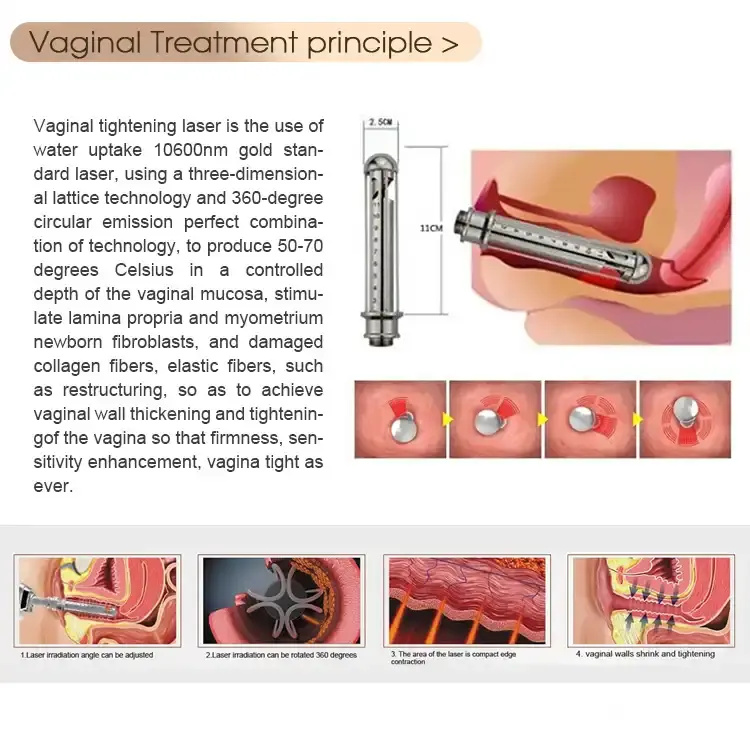
-
Implementation Planning and Staff Training
Successful equipment implementation requires comprehensive planning that addresses facility requirements, staff training needs, and patient communication strategies. Dermatology co2 laser machine systems require appropriate electrical service, ventilation systems, and dedicated treatment rooms that meet safety requirements and optimize patient comfort. Planning these infrastructure requirements during the selection process prevents implementation delays and additional costs. Staff training represents a critical success factor affecting patient safety, treatment outcomes, and operational efficiency. Quality manufacturers provide comprehensive training programs including theoretical education, hands-on practice sessions, and ongoing support during initial implementation periods. Ensuring adequate staff training before beginning patient treatments prevents complications while building confidence and competence that translates into superior patient care and satisfaction. Developing appropriate treatment protocols and pricing strategies maximizes equipment utilization and revenue generation potential. Establishing clear guidelines for patient selection, treatment parameters, and post-care instructions ensures consistent outcomes while minimizing complications. Effective marketing strategies that educate patients about treatment benefits and expected outcomes help build demand while managing realistic expectations that promote long-term satisfaction and referral generation.
Conclusion
Selecting the optimal CO2 laser machine for skin rejuvenation requires careful evaluation of technical specifications, clinical applications, manufacturer support, and practice-specific requirements. Success depends on matching equipment capabilities with patient needs, practice goals, and market positioning strategies.
Cooperate with Xi'an Taibo Laser Beauty Company
As a leading China dermatology co2 laser machine manufacturer with over 15 years of production experience, Xi'an Taibo Laser Beauty Company offers premium High Quality dermatology co2 laser machine solutions for practices worldwide. Our comprehensive product line includes advanced fractional CO2 systems with proven clinical efficacy and superior reliability. As a trusted China dermatology co2 laser machine supplier, we export to more than 180 countries and maintain rigorous quality standards through CE, ISO13485, and SGS certifications.
Our professional China dermatology co2 laser machine factory provides comprehensive support including two-year warranties, 24-hour technical assistance, detailed training programs, and flexible OEM/ODM services to meet unique practice requirements. Whether you need dermatology co2 laser machine for sale individually or China dermatology co2 laser machine wholesale quantities, we offer competitive dermatology co2 laser machine price options with exceptional value. Contact susan@taibobeauty.com for detailed specifications, pricing information, and to schedule a consultation with our technical experts.
FAQ
Q: What power level is recommended for professional CO2 laser treatments?
A: Professional systems should offer 30-40 watts minimum power for comprehensive skin resurfacing applications, with adjustable energy density control.
Q: How important are safety certifications when choosing CO2 laser equipment?
A: Safety certifications like CE, FDA, and ISO13485 are essential for legal compliance, insurance coverage, and patient safety assurance.
Q: What training is typically required for CO2 laser operation?
A: Most manufacturers provide 2-3 days of hands-on training covering theory, practical application, safety protocols, and maintenance procedures.
Q: How long do professional CO2 laser systems typically last?
A: Quality systems with proper maintenance typically provide 8-12 years of reliable service with regular component replacements and calibration.
References
1. "Fractional CO2 Laser Resurfacing: Clinical Applications and Treatment Parameters" - Dr. Michael Smith, Journal of Cosmetic Dermatology, 2023
2. "Comparative Analysis of CO2 Laser Systems for Aesthetic Applications" - Sarah Johnson, MD, Dermatologic Surgery International, 2024
3. "Safety Protocols and Best Practices in CO2 Laser Operations" - American Society for Laser Medicine and Surgery Clinical Guidelines, 2023
4. "Economic Analysis of Aesthetic Laser Equipment Investments" - Practice Management Review, Dr. Robert Chen, 2024
YOU MAY LIKE













